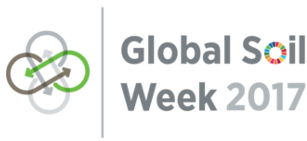![]()
Wednesday, 22 April 2015
Day 4: Visions for the future – an integrated perspective beyond 2015
Organisations
DIMR – German Institute for Human Rights (Germany)
FAO – Food and Agriculture Organization of the United Nations
IASS – Institute for Advanced Sustainability Studies (Germany)
Presentations
Willi Zimmermann: Three years of VGGT – Experiences and strategies for implementation and
monitoring
120 second session summary
Please download the Rapporteurs’ Report for this session here.
There is now an international consensus and agreed normative standard for what responsible, human rights-based land governance should look like – the Voluntary Guidelines on the Responsible Governance of Tenure of Land, Fisheries and Forests in the Context of National Food Security (VGGT). The strength of these guidelines rests not only on the unanimous adoption by the Committee on World Food Security (CFS), but also on the unique and inclusive process that preceded the negotiations.
The VGGT emphasise human rights and hence the obligations of states and the responsibilities of the private sector. At the same time, they acknowledge the crucial role of participation and call on states to support civil society activities in order to implement of the VGGT.
Some states have started to create technical guides to monitor their work at home and abroad. Others have started to review existing national laws and policies. Civil society actors have embarked on raising awareness, creating support material and strengthening monitoring mechanisms. And financial institutions, governments, and private sector actors have started to build partnerships to increase the transparency of land-related investments.
Three years after the endorsement of the VGGT, it is now time to take stock of experiences of implementation and discuss the strategies and incentives required to move forward and increase the uptake of the VGGT in policy and practice. The session invites actors from government, civil society, the private sector and academia to discuss these pertinent questions.
You may also be interested in the following Lunch Break Forum (LBF) contributions:
–> LBF-19: The atlas of large-scale land acquisition in Madagascar
Download the session description here.
Programme
9:00-9:10
Welcome & Introduction
Moderators: Alexander Müller (IASS, Germany), Michael Windfuhr (DIMR, Germany)
9:10-9:20
Kicking-off the debate: FAO’s experiences with the implementation and monitoring of the VGGT and the importance of multi-stakeholder processes
Paul-Munro Faure (FAO, Italy)
9:20-10:00
Experiences in VGGT implementation: Stories from the field
- Experiences with implementing the VGGT in law, policy and administrative procedures
Henry P. Pacis (Department of Environment and Natural Resources, Philippines) - Good practices from civil society in supporting and monitoring the VGGT implementation
Sofia Monsalve (FIAN, Germany)
Ramesh Sharma (Ekta Parishad, India)
- Lessons from applying the VGGT in financial institutions
Claudia Eckhardt (KfW, Germany) and Christiane Rudolph (DEG, Germany)
10:00-10:45
Open discussion with inputs
Input by Willi Zimmermann on the implementation and monitoring of the VGGT, in the context of contributing to achieve sustainable land and soil management
10:45-11:15
Break
11:15-12:00
Story harvesting in small groups: Identifying strategies and incentives to foster the implementation and monitoring of the VGGT
Facilitated by Charlotte Beckh and Elisa Gärtner (both IASS, Germany)
- Working group “Strategies and incentives for government actors” – chaired by Ghati Horombe (Care International Tanzania) and Yefred Myenzi (HAKIARDHI)
- Working group “Strategies for civil society organizations” – chaired by Marion Aberle (Welthungerhilfe)
- Working group “Strategies and incentives for financial institutions and private sector actors” – chaired by Duncan Pruett (Oxfam)
12:00-12:45
Plenary: Exchange and discussion of group outcomes
12:45-13:00
Wrap-up & Closing
Contact: Charlotte Beckh
